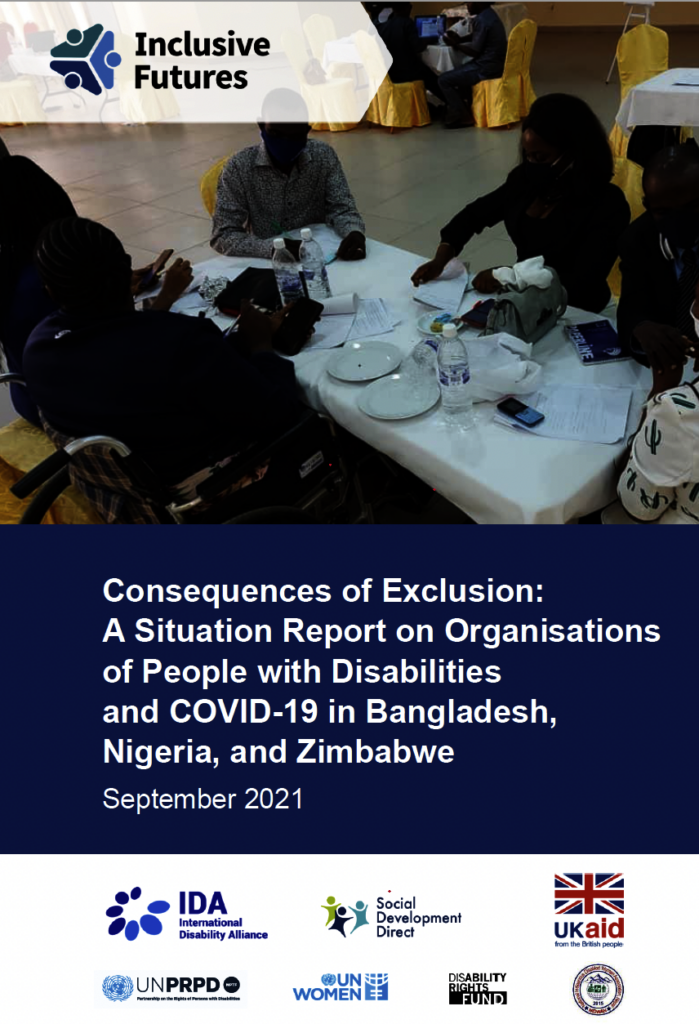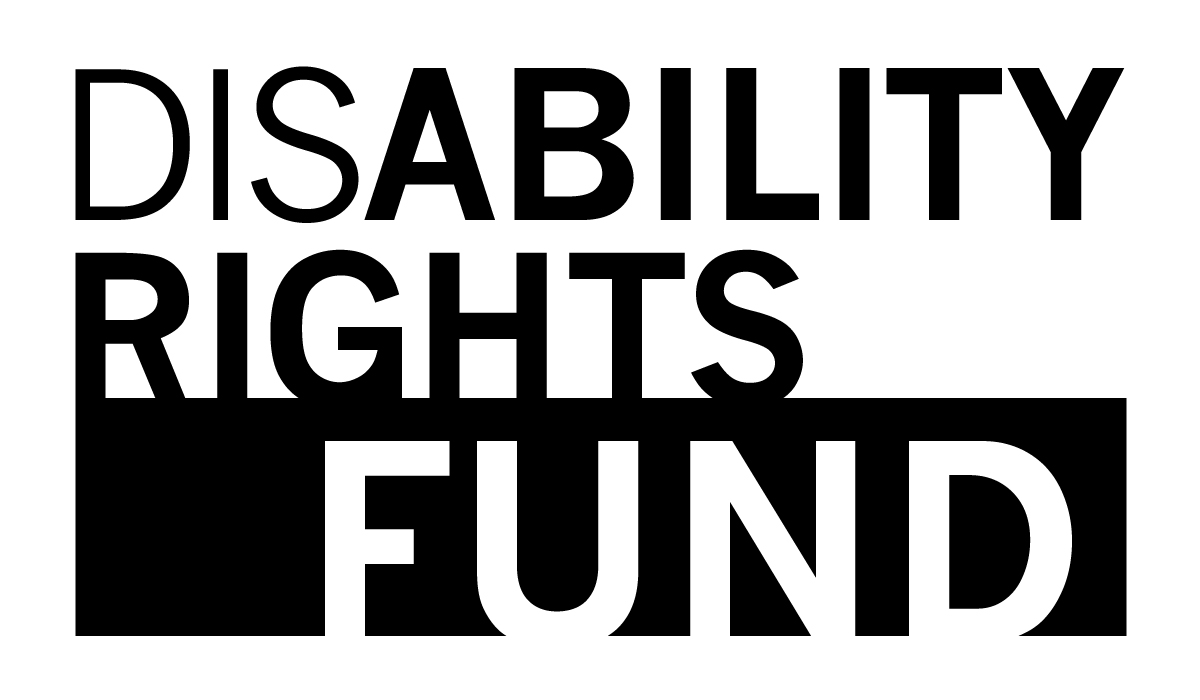During the COVID-19 pandemic, the Disability Rights Fund (DRF) and Disability Rights Advocacy Fund (DRAF) have been increasing flexible financial and technical support to organizations of persons with disabilities (OPDs) to help address the dire consequences of exclusion of persons with disabilities from disaster planning and relief.
A new report “Consequences of Exclusion: A Situation Report on Organisations of People with Disabilities and COVID-19 in Bangladesh, Nigeria, and Zimbabwe” and research and learning released by the FCDO (UK government) Disability Inclusive Development Programme’s Helpdesk reveals the shocking impact of exclusion from COVID-19 planning and relief efforts, and relates how the world can and must do better.
DRF/ DRAF’s Program Officer for Nigeria, Theophilus Odaudu supported the research team with OPD consultations in Nigeria and Diana Samarasan, our Founding Executive Director and Melanie Kawano-Chiu, our Monitoring, Evaluation and Learning (MEL) Manager were part of the project reference group.
The following DRF/DRAF grantees from Bangladesh and Nigeria were part of the research:
- Bangladesh: Access Bangladesh Foundation,
- Nigeria: Lionheart Ability Leaders International Foundation, She Writes Woman, and Advocacy for Women with Disabilities Initiative (AWWDI)
The report aims to compel mainstream development and humanitarian actors, as well as decision makers to ensure their work is inclusive.
Lorraine Wapling, Inclusive Futures technical lead and a DRF/DRAF Board Co-Chair, who worked on the research, said, “We knew this situation was bad for people with disabilities – but when we looked into the detail, it was even worse than we imagined. I was completely in shock. Despite all the hard work by organizations of persons with disabilities, the right to be included in times of crisis still seems far from being achieved.”
Diana Samarasan, Founding Executive Director, DRF and DRAF, said, “In a world in which official data on persons with disabilities is still too often absent, this report highlights critical information about the COVID-19 pandemic’s impact on representative organizations of persons with disabilities. COVID-19 has had a disproportionate impact on persons with disabilities, particularly on persons with disabilities who are also part of other marginalized groups, like girls and women. The data in this report strengthens the case for increased attention and resources for disability inclusion and the importance of ‘nothing about us without us.’”
Susan Pieri, associate programme director for Inclusive Futures, said: “Experience shows that it is more effective to plan for inclusion rather than react. Lessons learned in our COVID-19 response can be directly applied to making future crises response and recovery disability-inclusive. We know these lessons have been found before – but the simple fact of the matter is that people with disabilities are still being left behind and these lessons still aren’t being learnt by the sector.”
Pieri added: “There are more than one billion people with disabilities worldwide, that’s around 15% of the global population – we can’t continue to let down such a huge number of people in disaster responses.”
Inclusive Futures is a flagship disability and development inclusion program that is funded by UK Aid. Inclusive Futures brings together global leaders and specialists from 16 organizations to improve access to work, education and healthcare, and tackle the stigma and discrimination faced by people with disabilities.
To read the research and learnings, and find out more about Inclusive Futures, visit www.inclusivefutures.org/learning-from-covid-19

